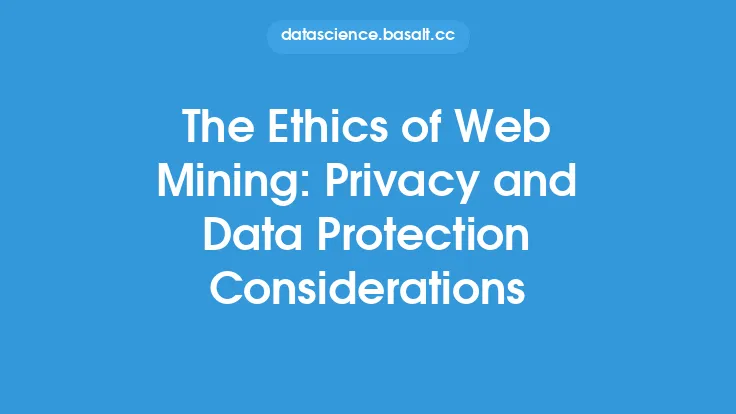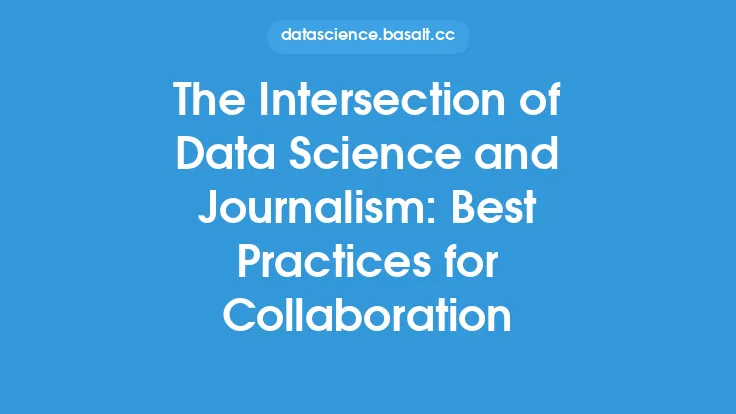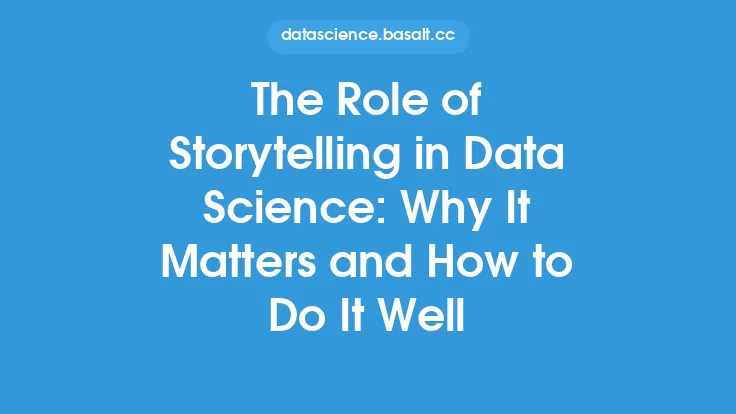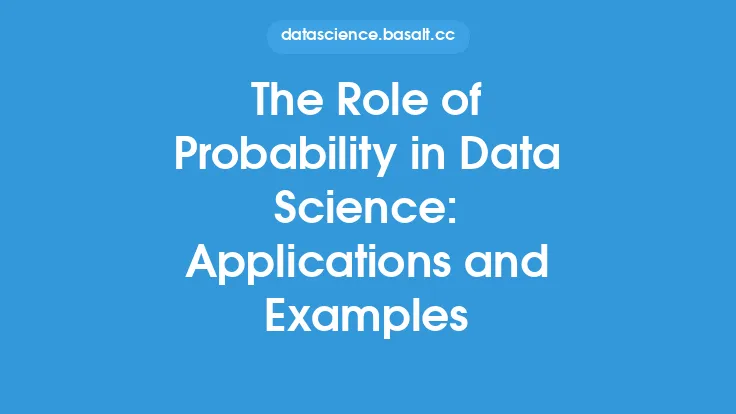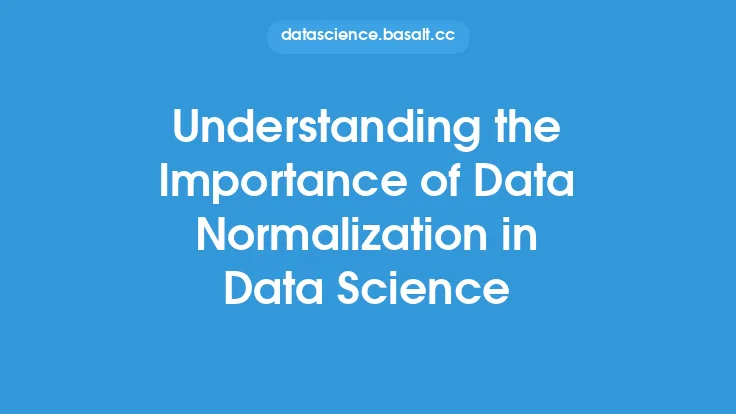As data science continues to evolve and play an increasingly important role in shaping business strategies and informing decision-making, the intersection of data privacy and ethics has become a critical area of focus. Data science involves the collection, analysis, and interpretation of large datasets to extract insights and knowledge, but this process often raises important questions about how data is handled, protected, and used. In this context, data privacy and ethics are essential considerations that can have a significant impact on the success and reputation of organizations.
Introduction to Data Privacy in Data Science
Data privacy in data science refers to the practices and procedures used to protect sensitive information and ensure that it is handled in a way that respects the rights and interests of individuals. This includes ensuring that data is collected and stored securely, that access to data is restricted to authorized personnel, and that data is used only for authorized purposes. Data privacy is a critical component of data governance, as it helps to build trust with customers, protect against data breaches, and ensure compliance with regulatory requirements.
The Role of Ethics in Data Science
Ethics plays a vital role in data science, as it provides a framework for making decisions about how data is collected, analyzed, and used. Ethical considerations in data science include ensuring that data is collected and used in a way that is transparent, fair, and respectful of individuals' rights and interests. This includes considering issues such as bias, fairness, and accountability in data-driven decision-making. Ethics also involves considering the potential consequences of data-driven decisions, including the potential for harm or discrimination.
Technical Considerations for Data Privacy and Ethics
From a technical perspective, ensuring data privacy and ethics in data science involves a range of considerations, including data encryption, access controls, and data anonymization. Data encryption involves using algorithms to protect data both in transit and at rest, making it unreadable to unauthorized parties. Access controls involve restricting access to data to authorized personnel, using techniques such as role-based access control and multi-factor authentication. Data anonymization involves removing or obscuring personally identifiable information from datasets, making it more difficult to identify individual data subjects.
Data Protection Regulations and Standards
A range of regulations and standards have been developed to protect data privacy and promote ethical practices in data science. These include the General Data Protection Regulation (GDPR) in the European Union, the California Consumer Privacy Act (CCPA) in the United States, and the Payment Card Industry Data Security Standard (PCI-DSS) for protecting payment card information. These regulations and standards provide a framework for ensuring that data is handled and protected in a way that respects the rights and interests of individuals.
The Importance of Transparency and Accountability
Transparency and accountability are essential components of data privacy and ethics in data science. Transparency involves providing clear and concise information about how data is collected, used, and protected, while accountability involves ensuring that individuals and organizations are responsible for their actions and decisions. This includes providing mechanisms for individuals to access and correct their personal data, as well as providing avenues for redress in the event of a data breach or other privacy violation.
Best Practices for Implementing Data Privacy and Ethics
A range of best practices can be used to implement data privacy and ethics in data science, including conducting regular data privacy impact assessments, developing and implementing data privacy policies and procedures, and providing training and awareness programs for personnel. Additionally, organizations can use techniques such as data minimization, which involves collecting and using only the minimum amount of data necessary to achieve a particular purpose, and privacy by design, which involves designing systems and processes to protect data privacy from the outset.
The Future of Data Privacy and Ethics in Data Science
As data science continues to evolve, the intersection of data privacy and ethics will remain a critical area of focus. Emerging technologies such as artificial intelligence, machine learning, and the Internet of Things (IoT) will continue to raise important questions about data privacy and ethics, and organizations will need to be proactive in addressing these issues. This includes investing in research and development, collaborating with stakeholders and regulators, and promoting a culture of transparency and accountability within their organizations.
Conclusion
In conclusion, the intersection of data privacy and ethics in data science is a complex and multifaceted issue that requires careful consideration and attention. By understanding the technical, regulatory, and ethical considerations involved, organizations can promote a culture of transparency and accountability, build trust with customers, and ensure compliance with regulatory requirements. As data science continues to evolve, it is essential that organizations prioritize data privacy and ethics, and work to create a future where data is handled and protected in a way that respects the rights and interests of individuals.
